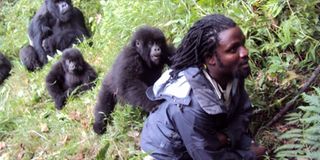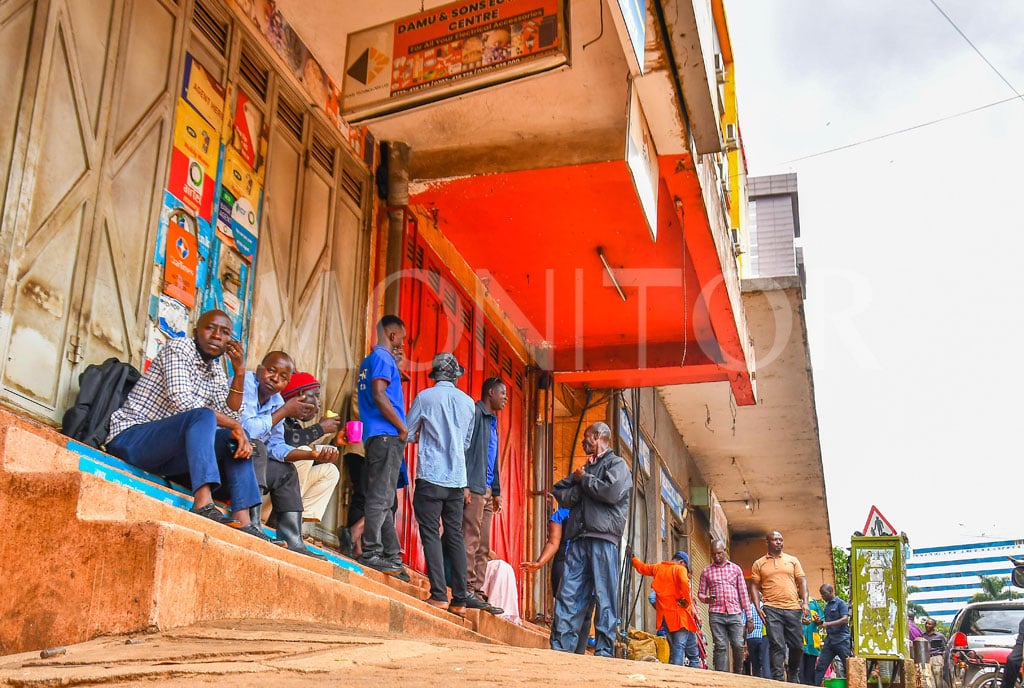Will Uganda increase gorilla permit fees just like Rwanda?

Gorilla trekking is one of the most sought after tourist activities across the world. File photo
What you need to know:
- A gorilla trekking permit in Uganda costs $600 (Shs2.1m) which is way cheaper than the $1,500 (Shs5.4m) that Rwanda will be charging.
- Mountain gorillas are the most severely endangered, with an estimated population of about 880 left in the wild and none in zoos.
Rwanda has increased gorilla trekking permits from $750 (Shs2.7m) to $1,500 (Shs5.4m) for all visitors.
The announcement made by the Rwanda Development Board early this week will clearly have an impact on trekking number, which for now, presents Uganda with an opportunity to tap into Rwanda’s market.
A gorilla trekking permit in Uganda costs $600 (Shs2.1m) which is way cheaper than the $1,500 (Shs5.4m) that Rwanda will be charging.
However, the increase, according to Clare Akamanzi, the chief executive officer of Rwanda Development Board, focuses on the long term where “we want to make sure that the communities living near or around the park area get a bigger share of tourism revenues to fund development projects and empower them economically”.
This, she says, also seeks to ensure sustainability of conservation initiatives as well as enhancing visitor experiences.
The debate
But beyond the review of the fees, is a debate that has been ignited in the region, specifically focusing on whether Uganda should take the same path and review its fees upwards.
Amos Wekesa is a key stakeholder in the tourism sectors and is the chairperson of the Tourism Committee on the Presidential Investors Round Table.
Therefore, he speaks from a vantage point and argues that Uganda needs to “put our house in order to take advantage of the events [in Rwanda].”
His argument is supported by Richard Smith of Aardvark Safaris, who believes that the new fees in Rwanda are likely to drive business to Uganda.
“If Uganda moves in the same direction [increase permit fees] there will be an overall drop in demand and trekkers might be forced to opt for other tourism activities,” he says.
In London, a tour operator, Miles Barber, thinks the reviewed rates are quite high and will have an impact on the numbers.
“There is so much choice now for travellers around the world,” Barber, who works for Theobald Barbour, a tour company based in London, says, adding the increase might have a negative impact.
This, according to Geofrey Baluku, a tourism consultant, presents Uganda with an opportunity to conduct an in-depth analysis in order to have an informed action plan.
However, he wonders “why we [Uganda] always have to wait for Rwanda to act,” concluding that Rwanda might be smarter because they have their sight set on the longer term as well as providing tourists with better packages.
According to Rwanda Development Board, an average of 80 permits are issued to tourists every day.
“In Uganda where a gorilla permit is $600 it takes one more than $550 to travel to Bwindi in Kisoro,” Baluku says, highlighting that the distance to Rwanda’s gorilla parks in Virunga is shorter compared to the one between Entebbe and Bwindi in Kisoro.
Although Uganda has been selling gorilla permits at $600, sales still favour Rwanda, which effective this week will increase from $750 up to $1,500.
Similarly, unlike Uganda, Rwanda has an airline (Rwandair) that connects to major tourists destination such as UK (London).
“To beef up this, their transport to the Virunga Volcanoes is cheaper, accommodation is relative. This is the edge Rwanda has over Uganda,” Baluku argues. However, according to Andrew Sseguya, the Uganda Wildlife Authority executive director, Uganda remains a unique destination because gorillas can be trekked in two places - Mgahinga and Bwindi - unlike Rwanda which only has Virunga.
This therefore presents tourism stakeholders in Uganda with tough questions that must be answered to place the country in a vantage point where it can use its advantages effectively.
“If we plan well, according to Baluku, we might be able to outsmart Rwanda,” however, he says, Uganda must not forget that Rwanda might be seeking to establish itself in the long term as a key destination instead of being an add on from Kenya and Tanzania.
“We must use our gorilla permit as a cache by offering promotions as we leverage on the current events,” he says, adding that “If we have 10,000 permits per year, we can opt to use 1,000 as a bait for promotions and other incentives.”
Tourists booking in different national parks for longer periods, he advises, must also be considered for automatic qualification of certain privileges such as gorilla permits, which can be catered for under different promotions.
The lack of good promotions and public relations, according to Wekesa, disfavours Uganda and it is time for Uganda to value the power of public relations if it is to have leverage over other countries in the region.
“Uganda’s potential isn’t in dispute but no one eats potential and no one can take potential to the bank in exchange for capital,” he stresses.
In 2012 Rwanda increased its gorilla permits from $500 to $750 after the increase was implemented in Rwanda, Uganda Wildlife Authority was tempted to increase the its fees from $500 to $600.
However this time, according to Sseguya, for now, there is no plan for an upward review of permits in reaction to the events in Rwanda.
“It is not yet time for Uganda to revise the fees upwards. We still charge $600 per permit per trek,” Sseguya told The East African in a recent interview.
Endangered
Mountain gorillas are the most severely endangered, with an estimated population of about 880 left in the wild and none in zoos. Of these, according to Uganda Wildlife Authority, a population of more than 500 is found in Uganda. Uganda is home to about 53.9 per cent of the World Mountain Gorilla Population.




